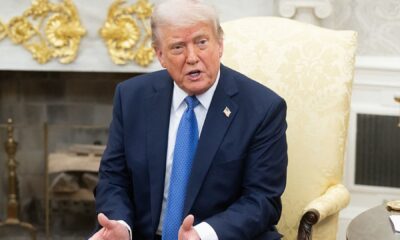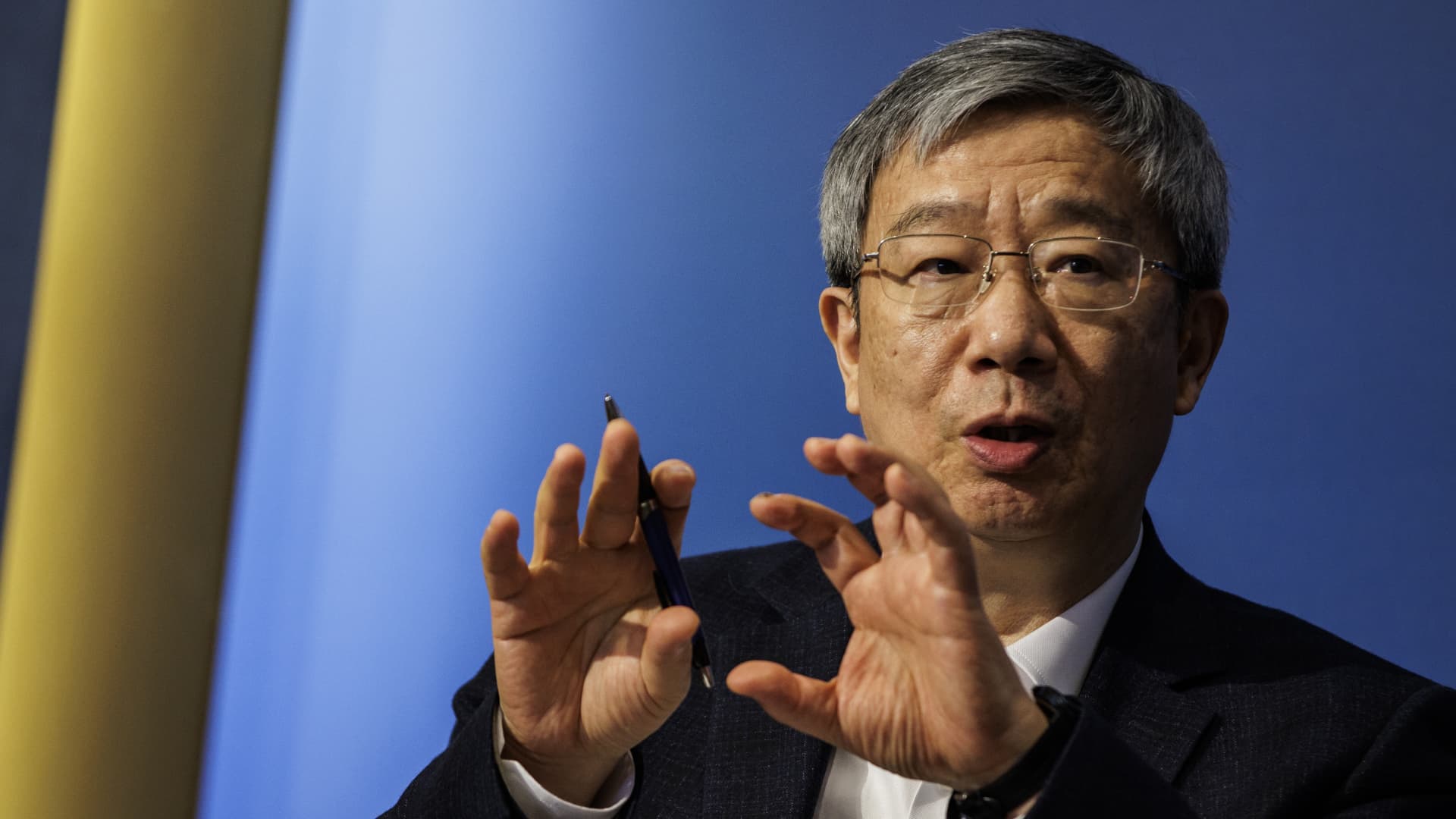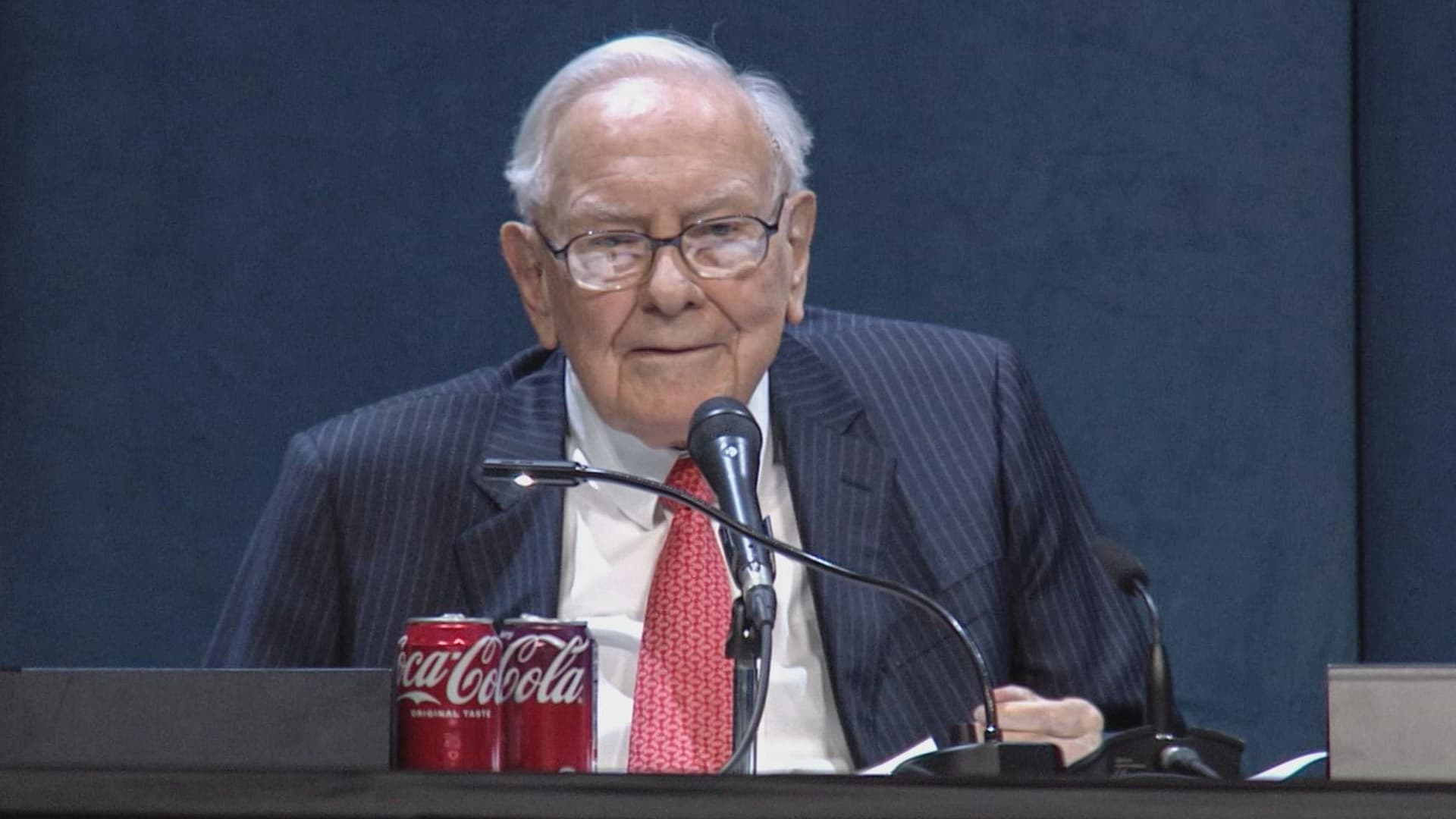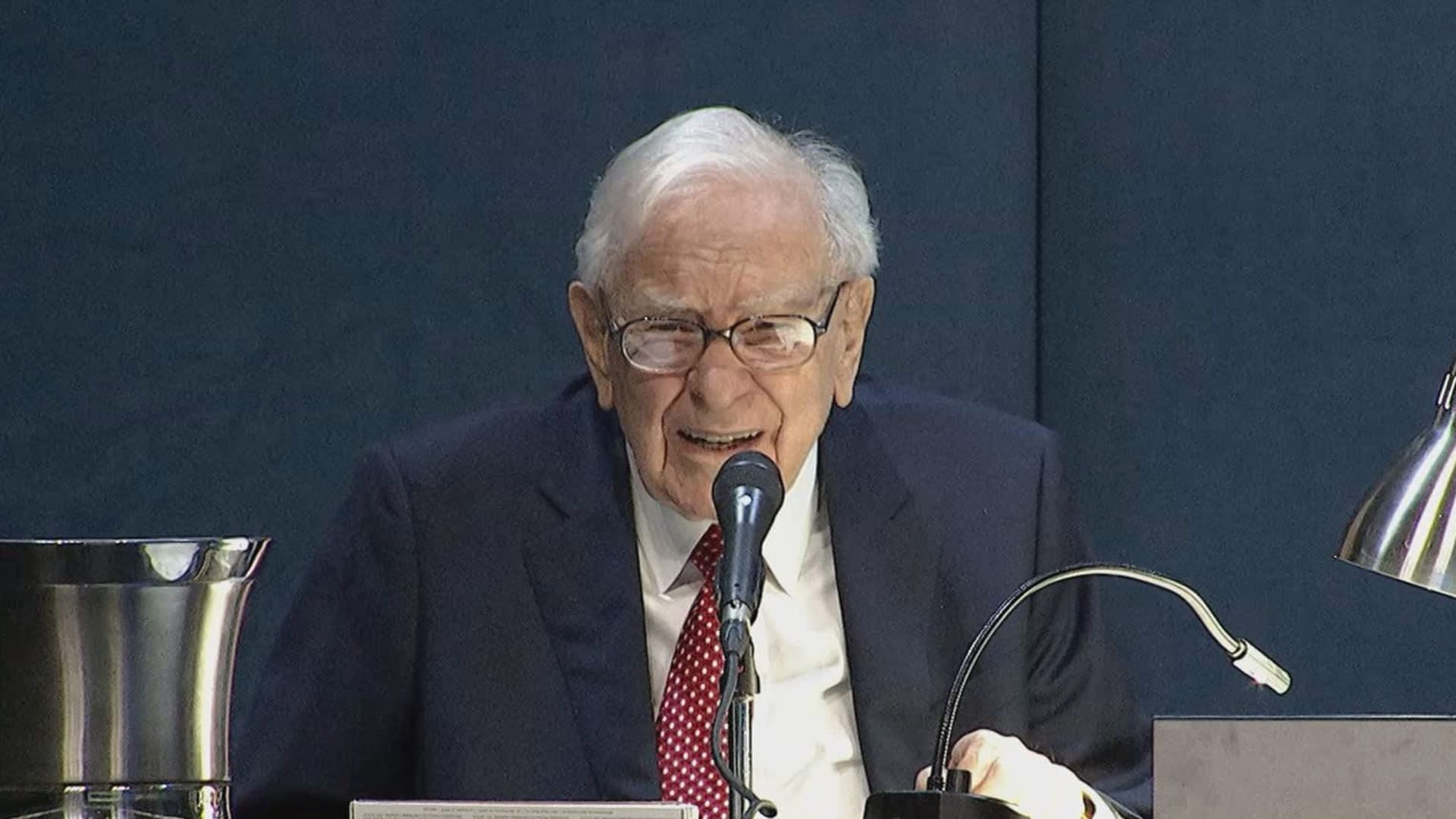Yi Gang was governor of the People’s Bank of China from 2018 to 2023. He is pictured here speaking at the Peterson Institute for International Economics in Washington, DC, US, on Saturday, April 15, 2023.
Bloomberg | Bloomberg | Getty Images
SHANGHAI — China’s policymakers need to focus on boosting domestic demand, Yi Gang, former head of the People’s Bank of China, said Friday at the Bund Summit in Shanghai.
“I think right now they should focus on fighting the deflationary pressure,” Yi said, adding that “the key word is: how to improve domestic demand, how they can successfully deal with the situation of the real estate market as well as the local government debt problem, and influence the confidence of society.”
“At this point, proactive fiscal policy and accommodative monetary policy are important,” he said.
In contrast to high inflation in the U.S. and Europe, China’s consumer prices fell in 2023 and have only picked up marginally so far this year as domestic demand remains lackluster.
The latest CPI read, due out on Monday, is expected to tick up from 0.5% year-on-year growth in July to 0.70% in August, according economists polled by Reuters. That would still be only the fastest since February’s 0.7% CPI increase.
Yi said he expected the consumer price index to “converge above zero by the end of the year,” while the producer price index would likely reach zero, after negative prints in recent months.
The core CPI, which strips out food and energy prices, rose by 0.4% in July from a year ago, down from 0.6% in June and May.
Yi was PBoC governor from March 2018 to July 2023. Pan Gongsheng is the current head of China’s central bank.
Zou Lan, director of the PBoC’s monetary policy department, told reporters Thursday the central bank still had room to lower the reserve requirement ratio, which determines the amount of cash banks need to have on hand. It is just one of the PBoC’s several monetary policy tools.
In July, Chinese policymakers announced major support for a trade-in policy to boost consumption. While central and local authorities have also taken steps to bolster the massive real estate market, sales and investment in new properties have still fallen.
“The challenge for Chinese policymakers is to manage the housing crisis, and to ensure that there is enough domestic demand to maintain the high level of economic growth,” Jeffrey J. Schott, senior fellow at the Peterson Institute for International Economics, told reporters Thursday.
“That is so important for the Chinese economy and for moving more and more people up to higher standards of living,” he said.
Contrast with Japan
Chinese consumption has remained lackluster since the pandemic. In the major cities of Beijing and Shanghai, retail sales fell by 3.8 % and by 6.1%, respectively, in July from a year ago, official data showed.
Major factors behind low consumer sentiment include uncertainty about future income and the wealth impact from the real estate market slump.
“Central banks should avoid prolonged deflation even if it is mild, that could affect wage determination,” Haruhiko Kuroda, former head of the Bank of Japan, said during the same panel session as Yi.
Kuroda pointed out that China’s current deflationary situation has been far shorter than what Japan faced. But he said that 15 years of deflation in Japan prevented wages from going up significantly, until the last year or two.
— CNBC’s Sonia Heng contributed to this report.

 Economics1 week ago
Economics1 week ago
 Accounting1 week ago
Accounting1 week ago
 Economics1 week ago
Economics1 week ago
 Economics1 week ago
Economics1 week ago
 Economics1 week ago
Economics1 week ago
 Economics1 week ago
Economics1 week ago
 Personal Finance7 days ago
Personal Finance7 days ago
 Economics1 week ago
Economics1 week ago













